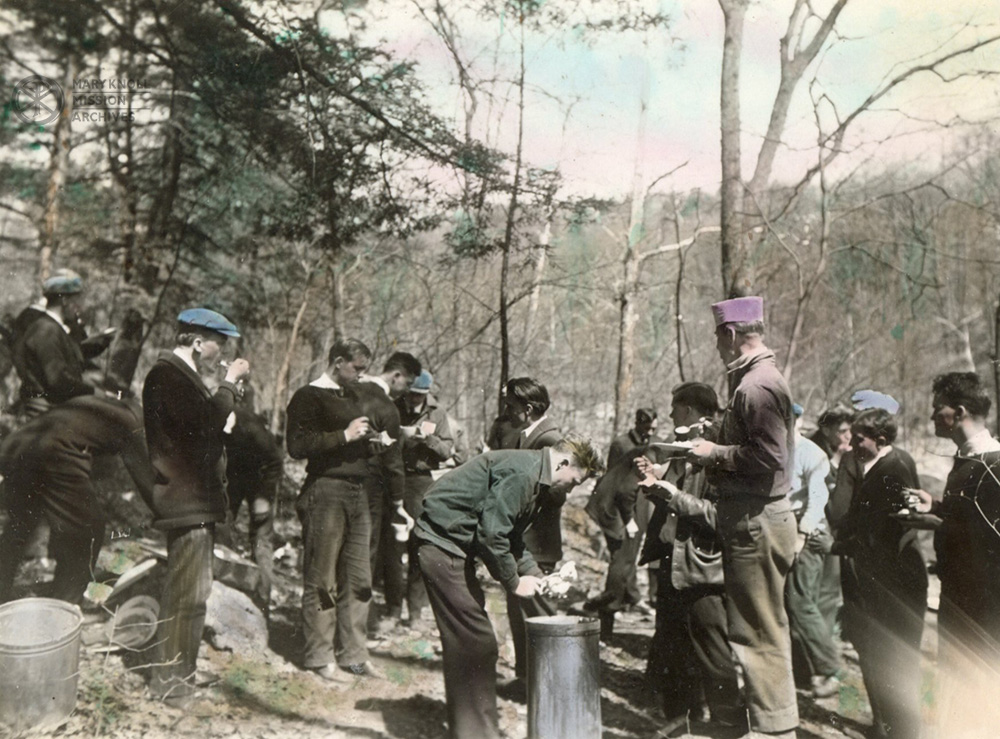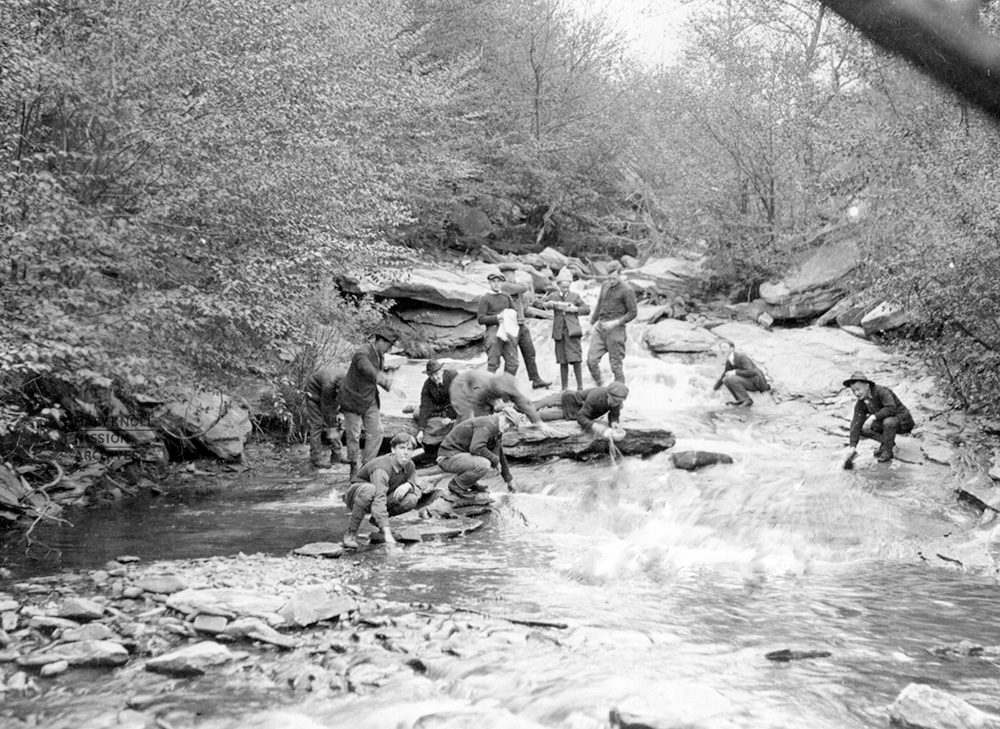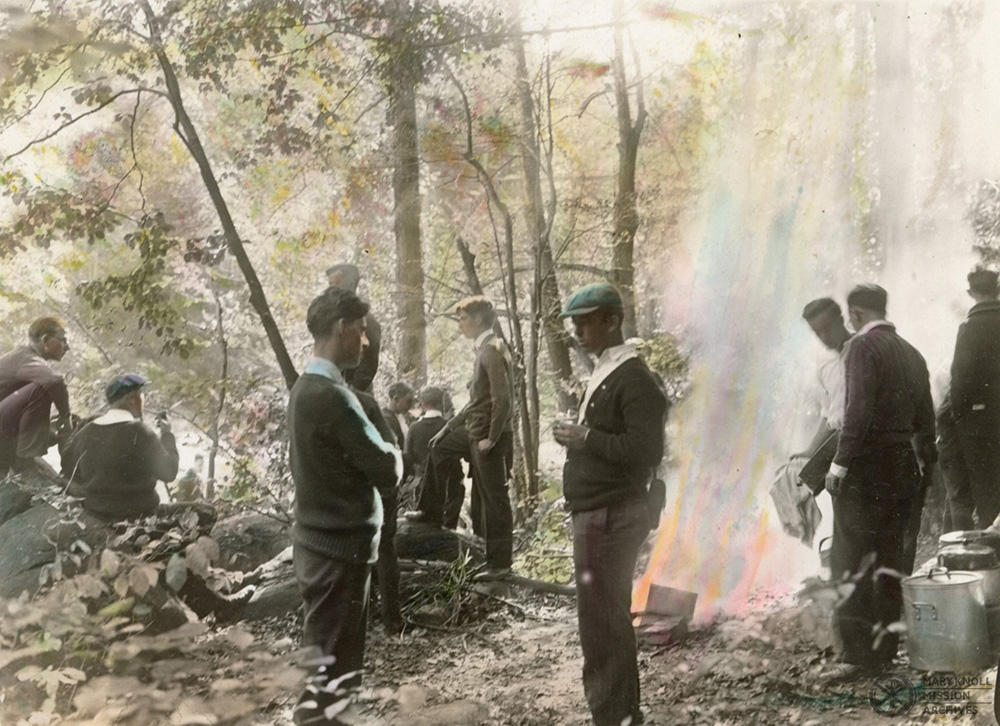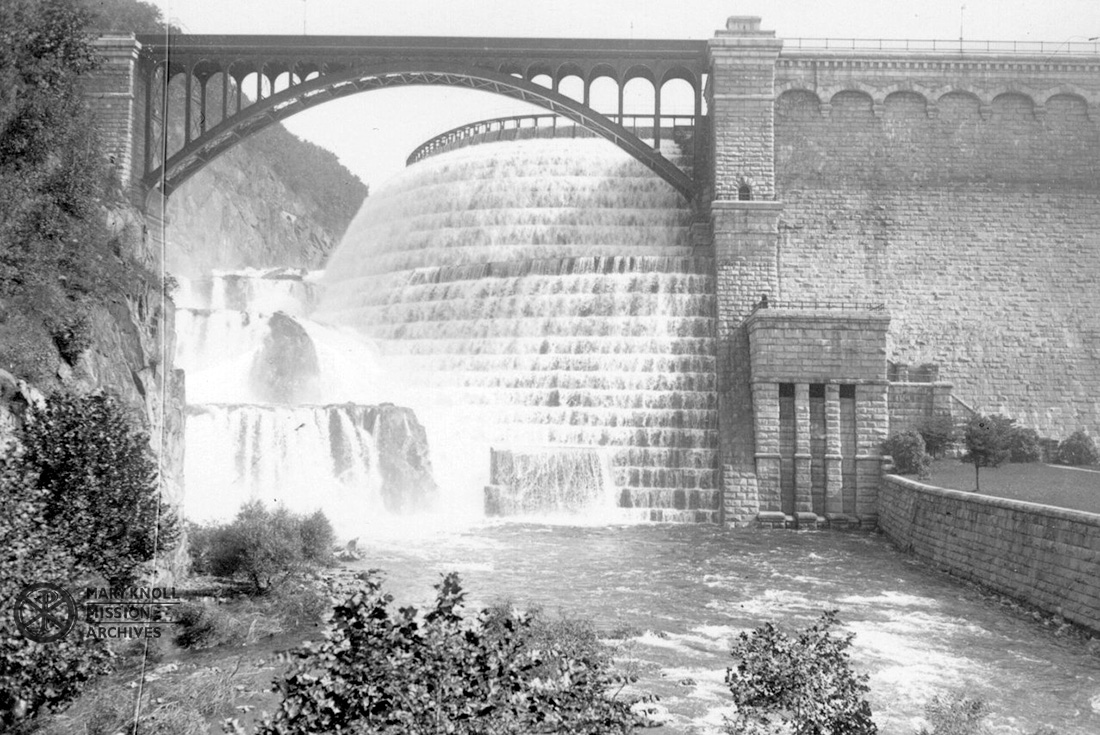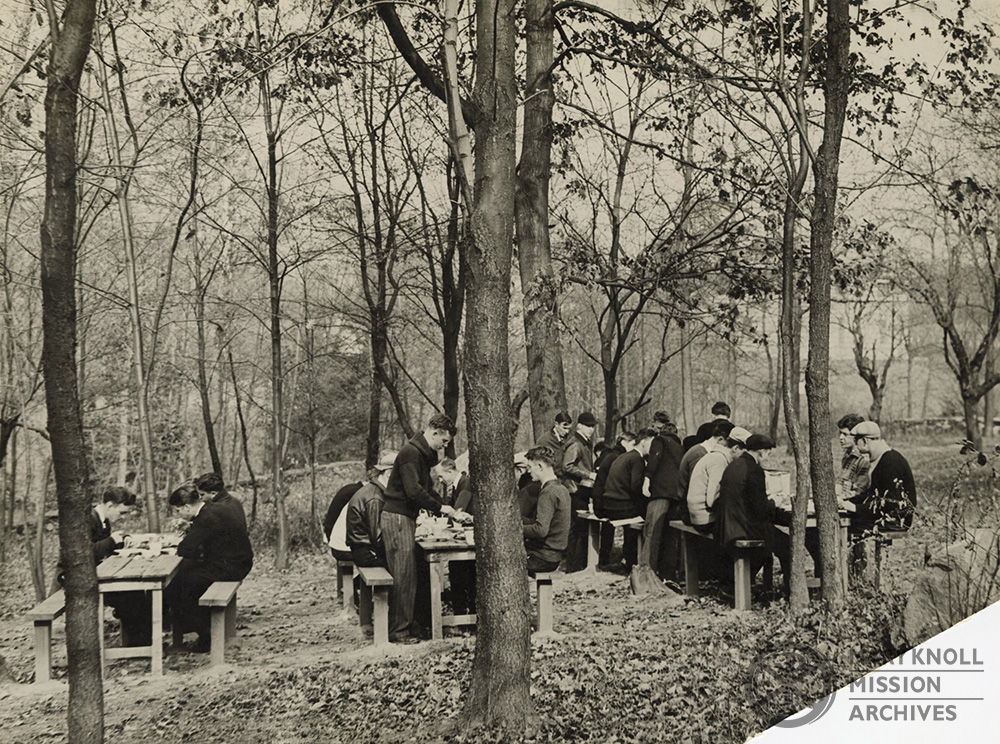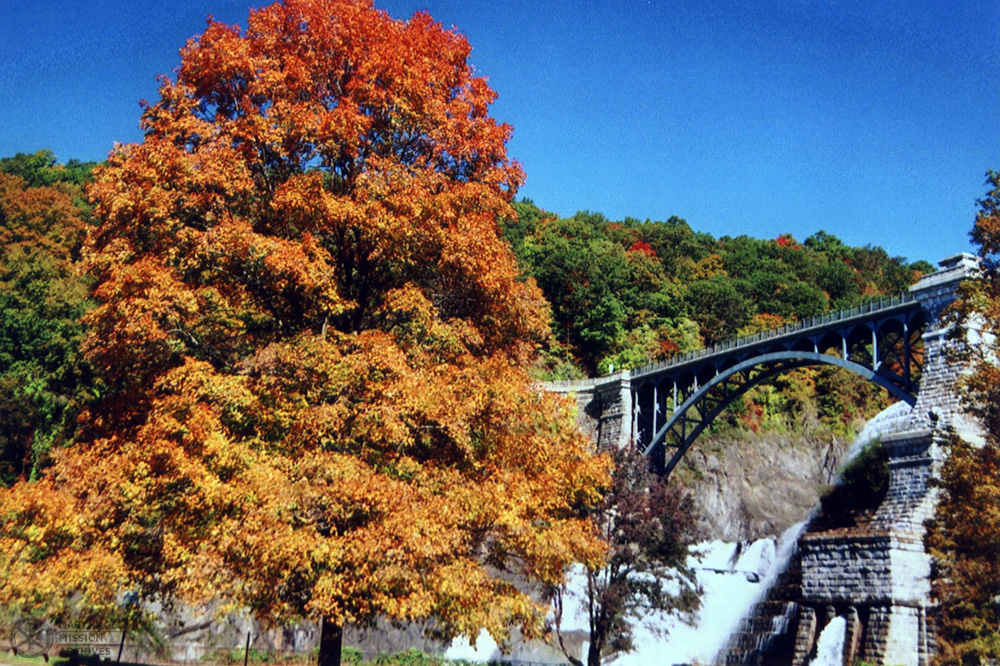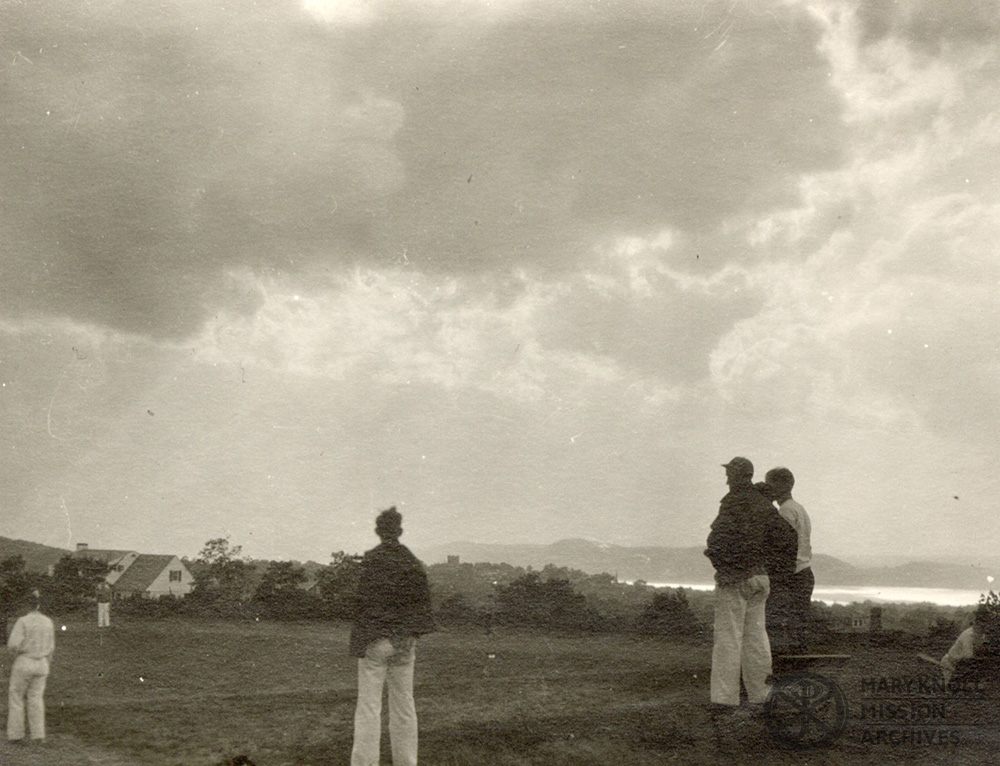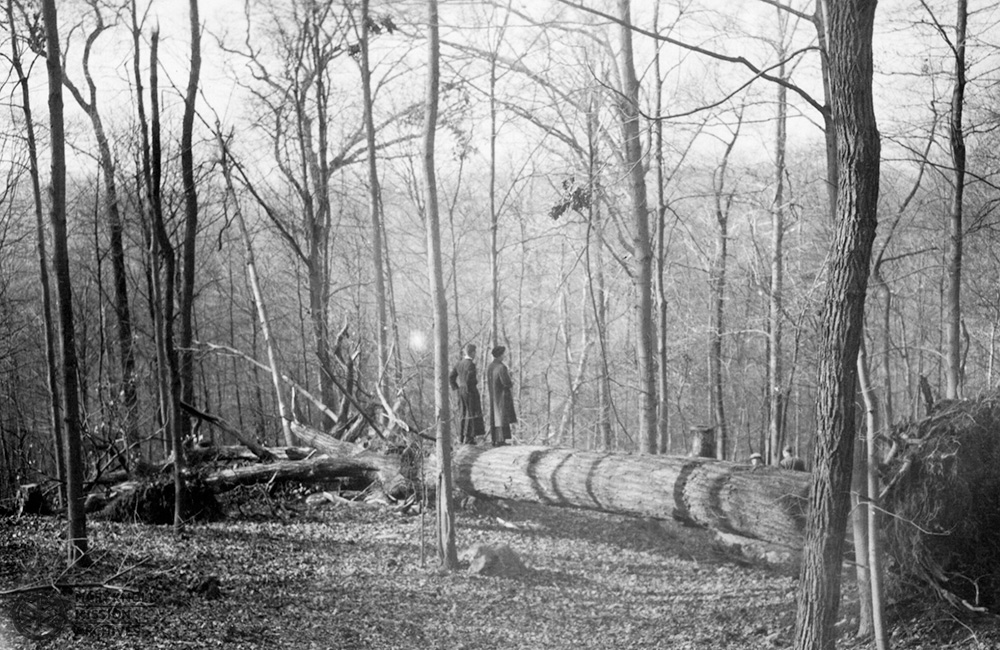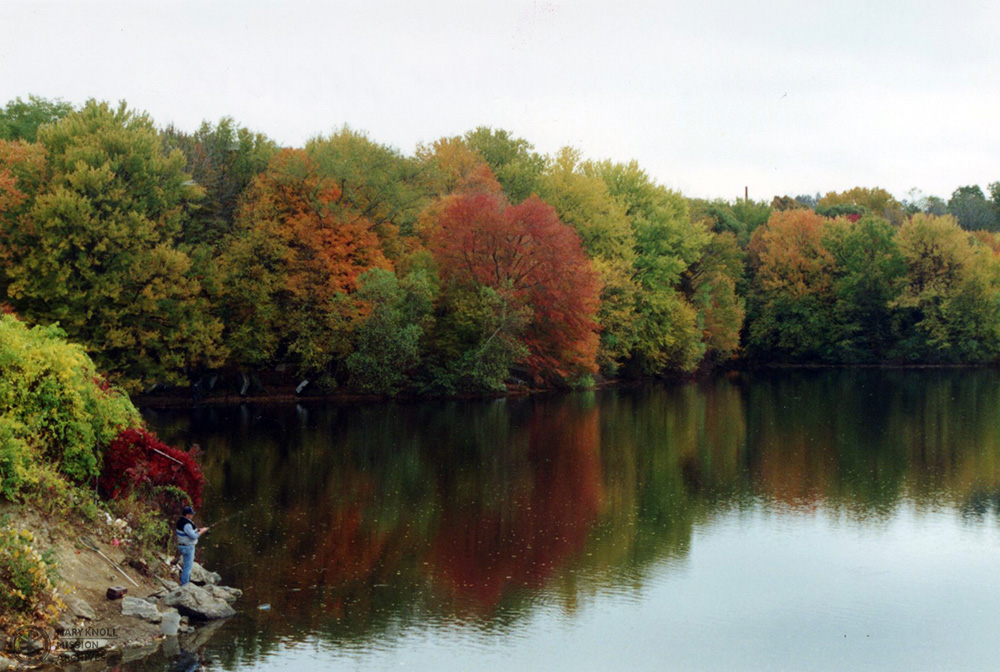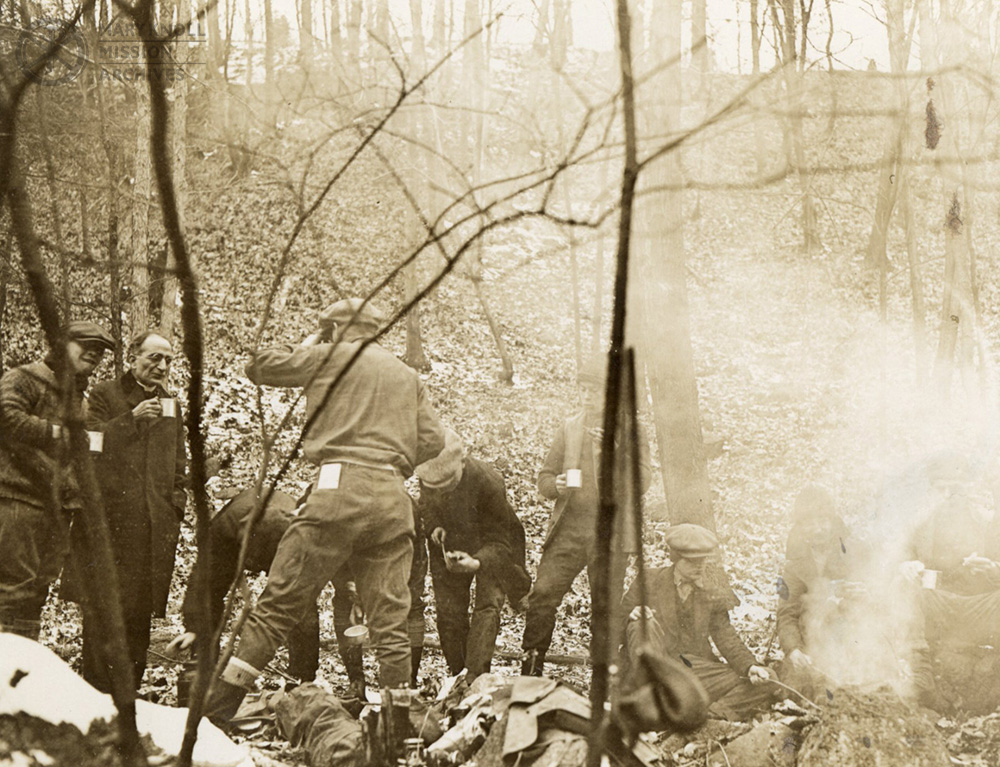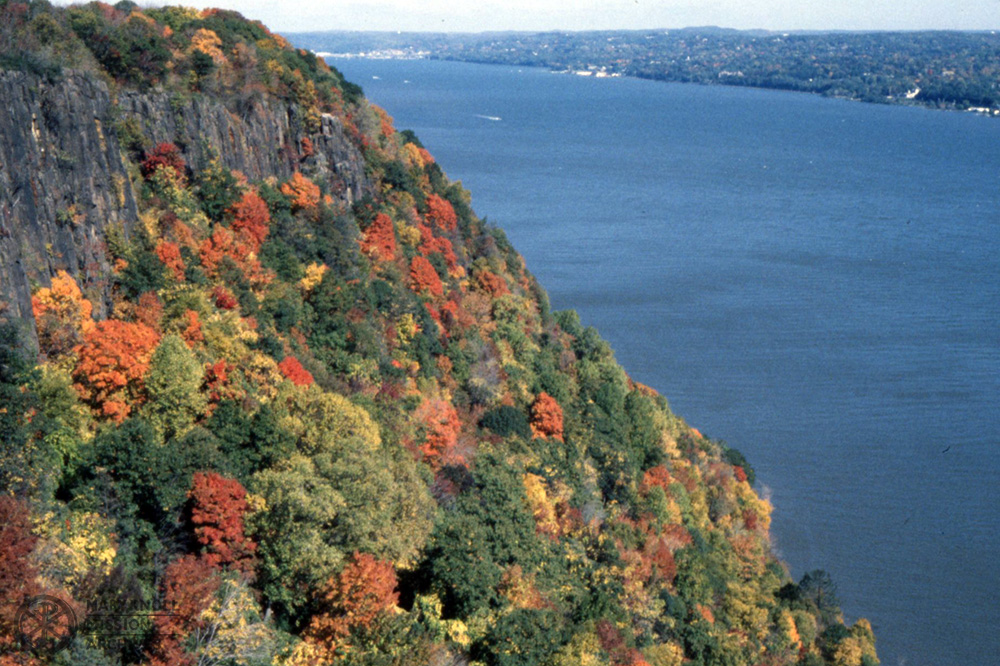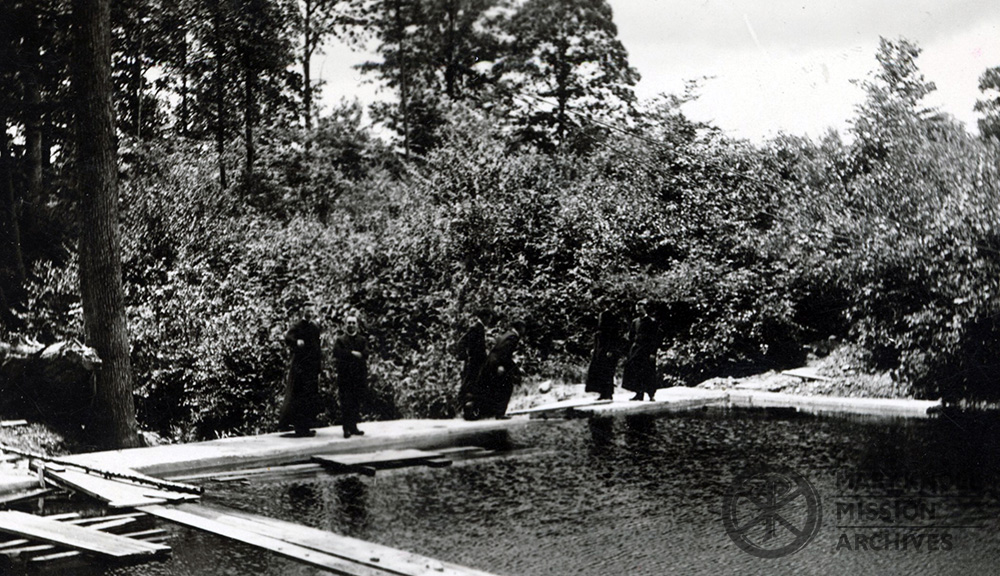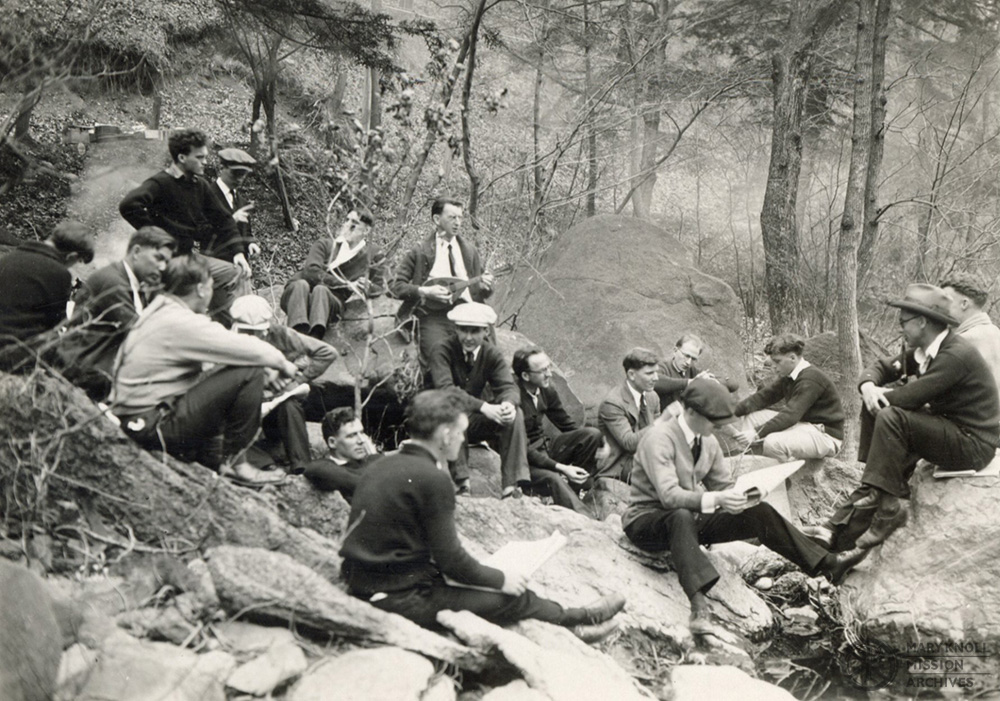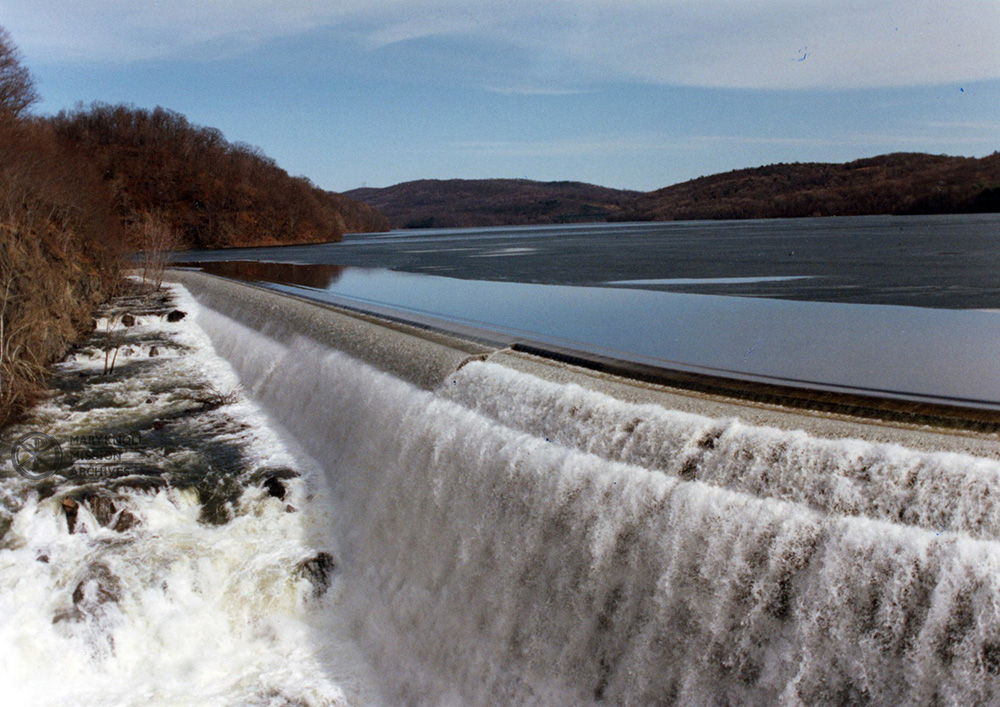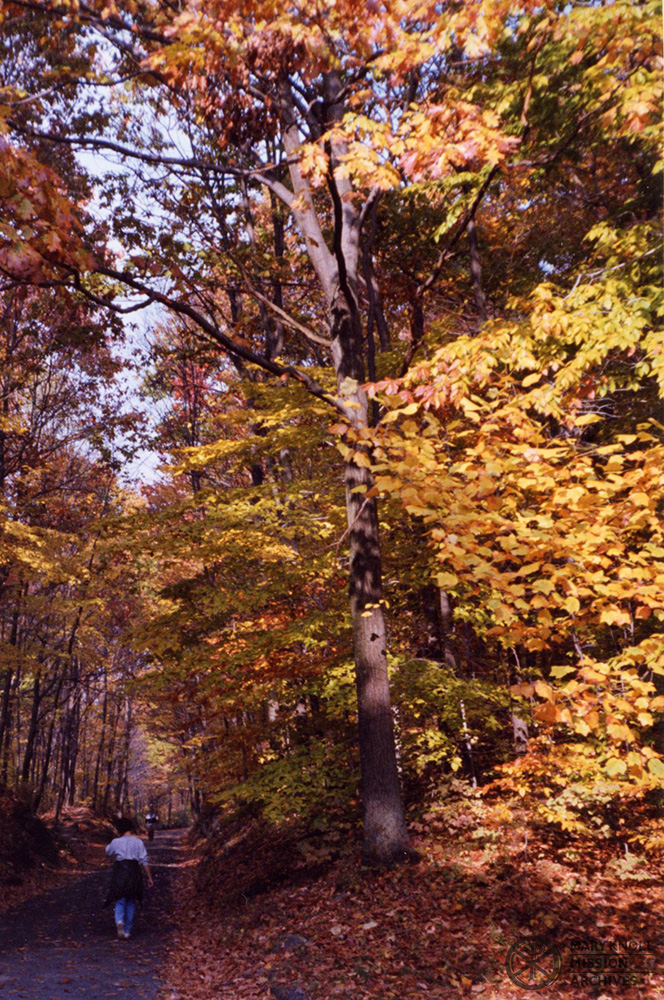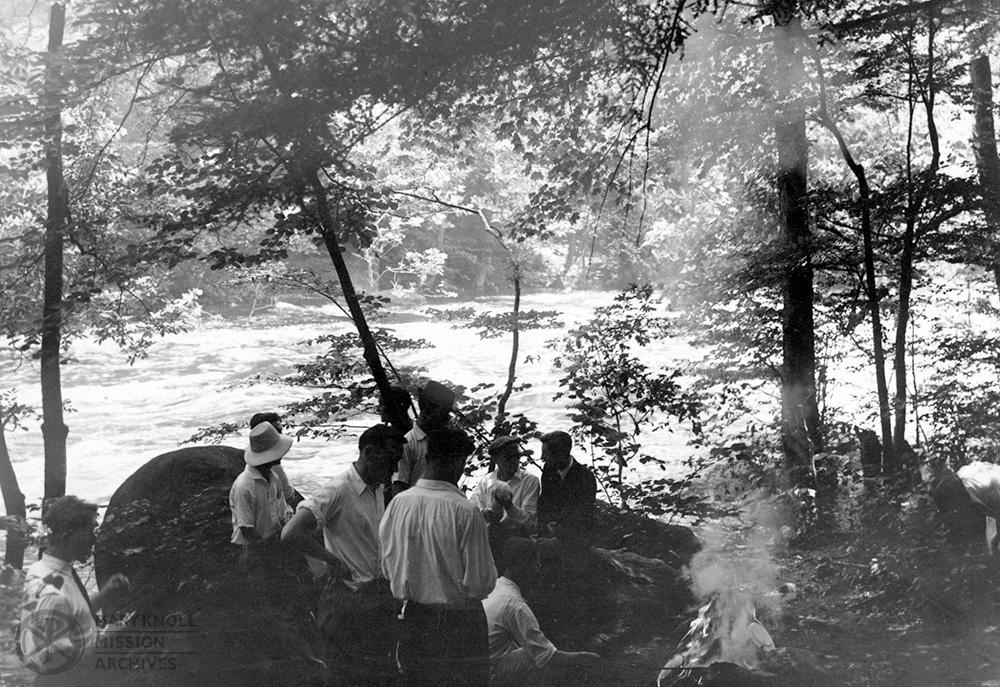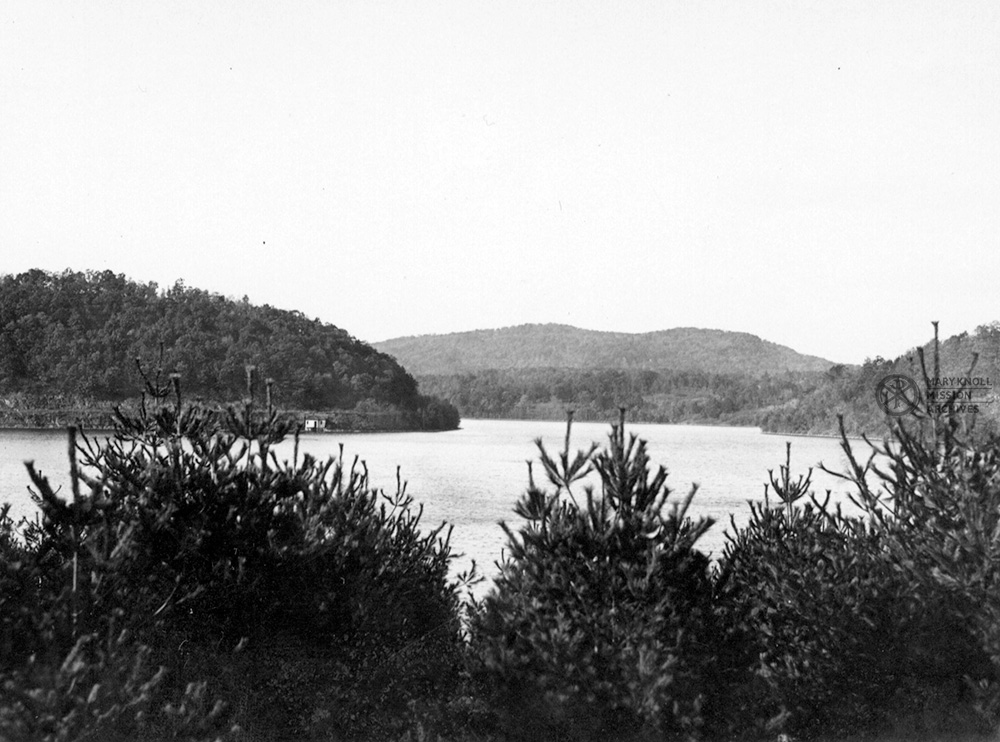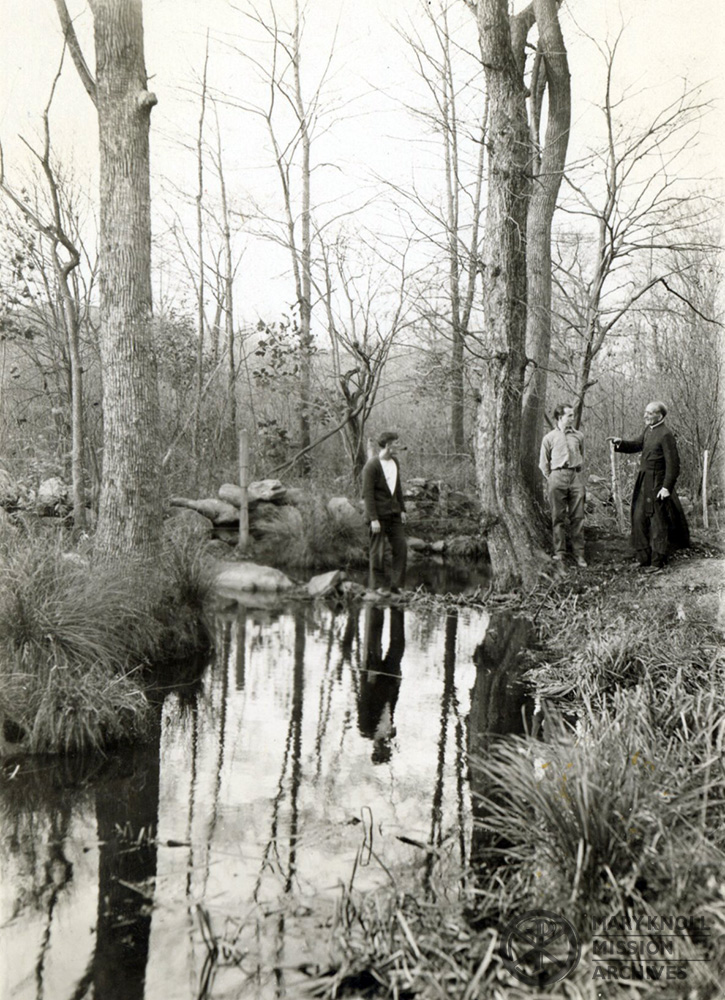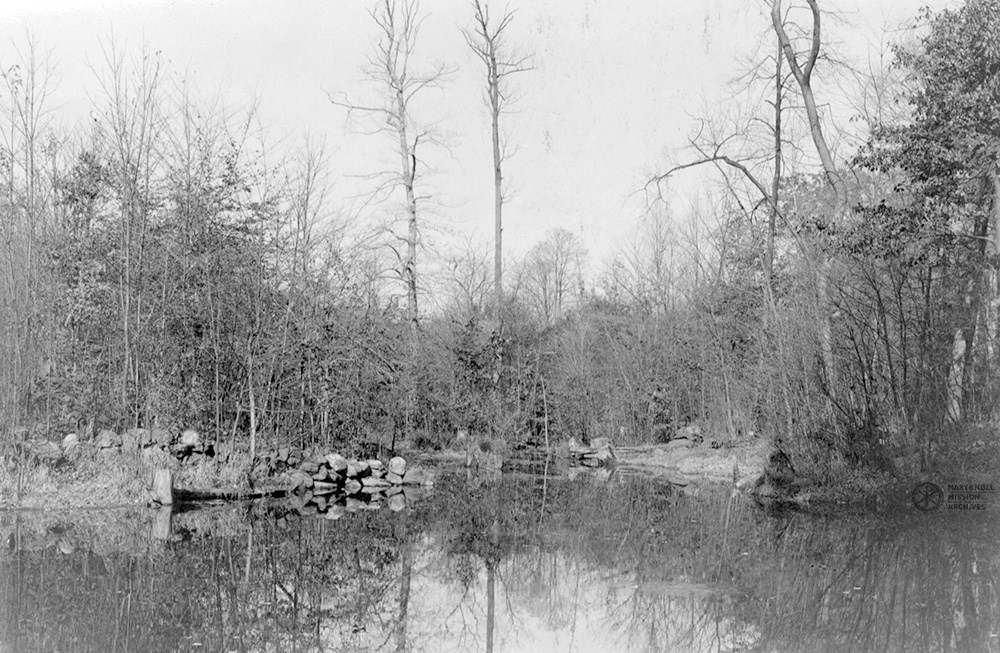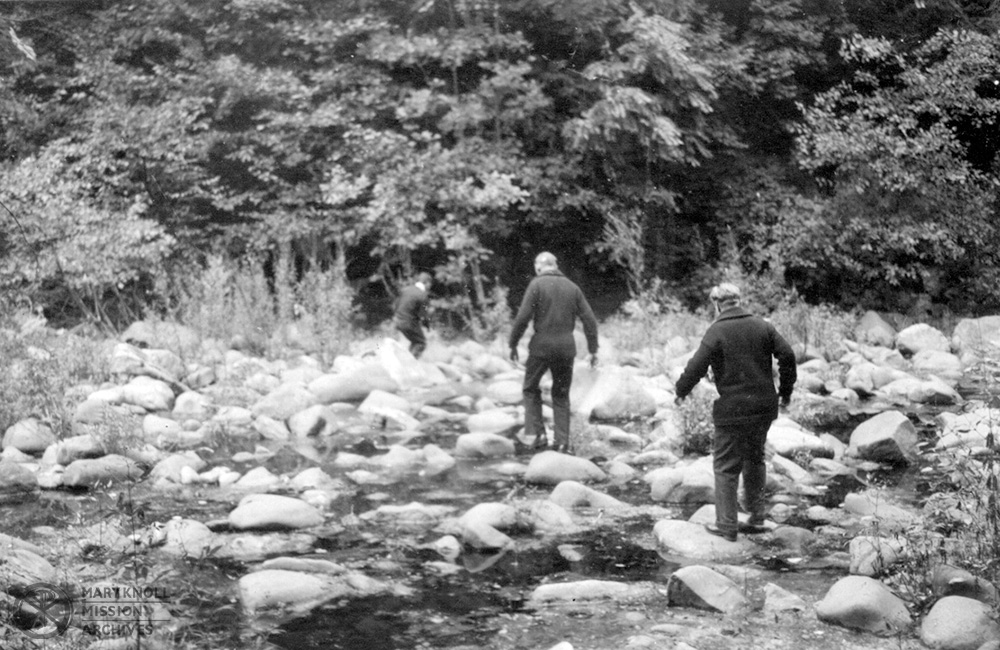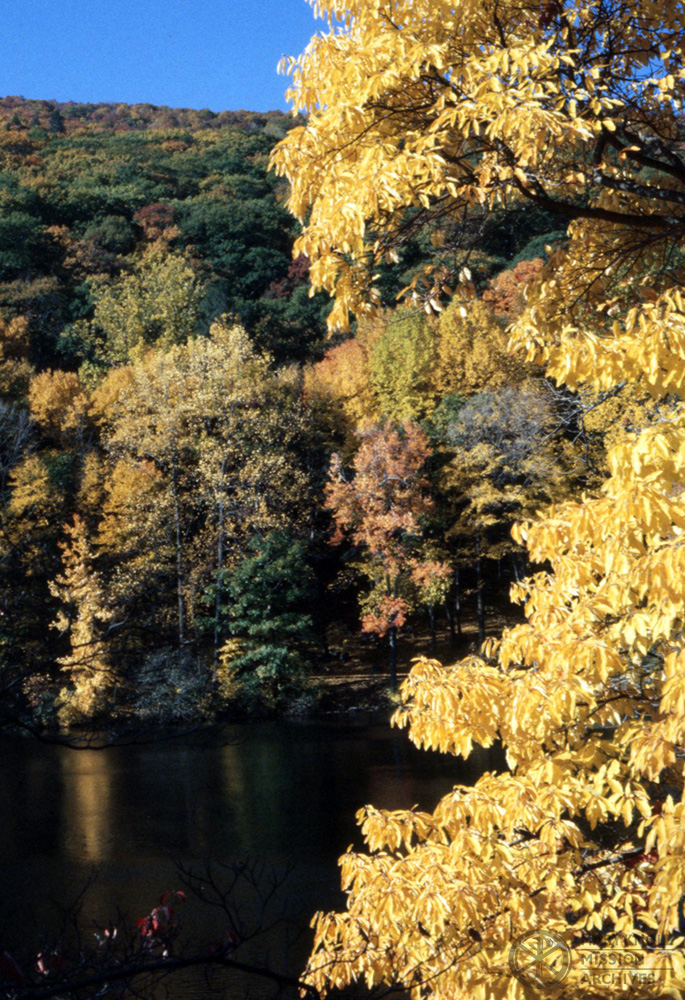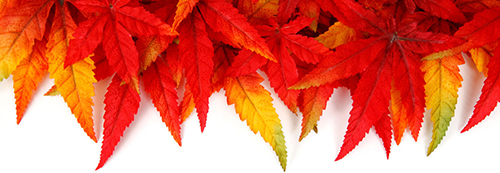
As the temperature begins to cool and the leaves start to lose their green hue, we enter the month of October. Here in Westchester County looking over the Hudson River, we watch the trees catch fire with beautiful reds, yellows, and oranges, letting us know that fall is well underway. It is a wonderful time of year to be outside, and what better way to experience this seasonal shift than a walk through the woods. A hike full of fresh air, surrounded by the beauty of nature is a welcome respite for the body, mind, and soul. It did not surprise me to find out that a hike in the fall around Westchester County was a common activity for seminarians living and studying at the Maryknoll Fathers and Brothers Center. Below you will see an entry from the October 1925 issue of The Field Afar detailing a “hikers” expedition and expressing the beauty of the county, along with images throughout the years of the adventurers and their views along the way.
“A favorite form of recreation at Maryknoll is – and always has been – ‘an all-day hike.’ After a short period of manual labor – for no day is complete without its moments of consecrated labor – the ‘hikers’ start for a common destination, to which spot the provisions for lunch sometimes go beforehand.
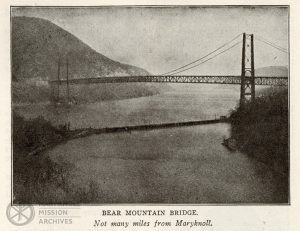 Natives will tell you that our Westchester County is the most beautiful in the country, and our hikers will affirm that statement. Snapshots of some journeyings have been unusually attractive. Recently we selected two of these, which are reproduced with these notes, taken on one of the trips over the Storm King Highway, on the opposite side of the Hudson and north from Maryknoll. When the destination is reached, a camp fire is prepared, coffee made, and the cook, a former army officer, serves a meal such as only hikers can relish. From enthusiastic accounts of these infrequent excursions, we believe that much good results.
Natives will tell you that our Westchester County is the most beautiful in the country, and our hikers will affirm that statement. Snapshots of some journeyings have been unusually attractive. Recently we selected two of these, which are reproduced with these notes, taken on one of the trips over the Storm King Highway, on the opposite side of the Hudson and north from Maryknoll. When the destination is reached, a camp fire is prepared, coffee made, and the cook, a former army officer, serves a meal such as only hikers can relish. From enthusiastic accounts of these infrequent excursions, we believe that much good results.
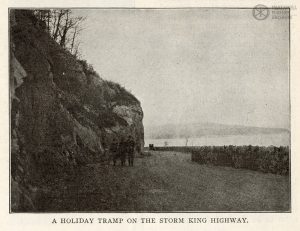 A foretaste of mission journeys, too, is experienced. Fr. Foto [Fr. Anthony Cotta], who usually accompanies the hikers and who is no stranger to the missions, assures the tyros that traveling conditions in the Orient may not be so propitious and even hints that there may be no ‘fodder’ waiting at the end of the road.”
A foretaste of mission journeys, too, is experienced. Fr. Foto [Fr. Anthony Cotta], who usually accompanies the hikers and who is no stranger to the missions, assures the tyros that traveling conditions in the Orient may not be so propitious and even hints that there may be no ‘fodder’ waiting at the end of the road.”
The Field Afar, October 1925, p. 269

